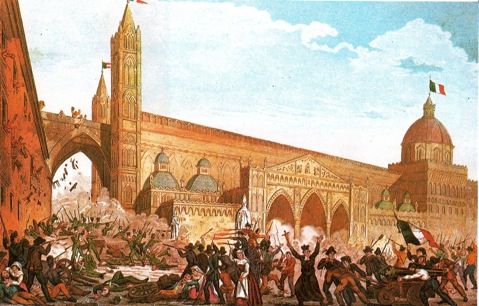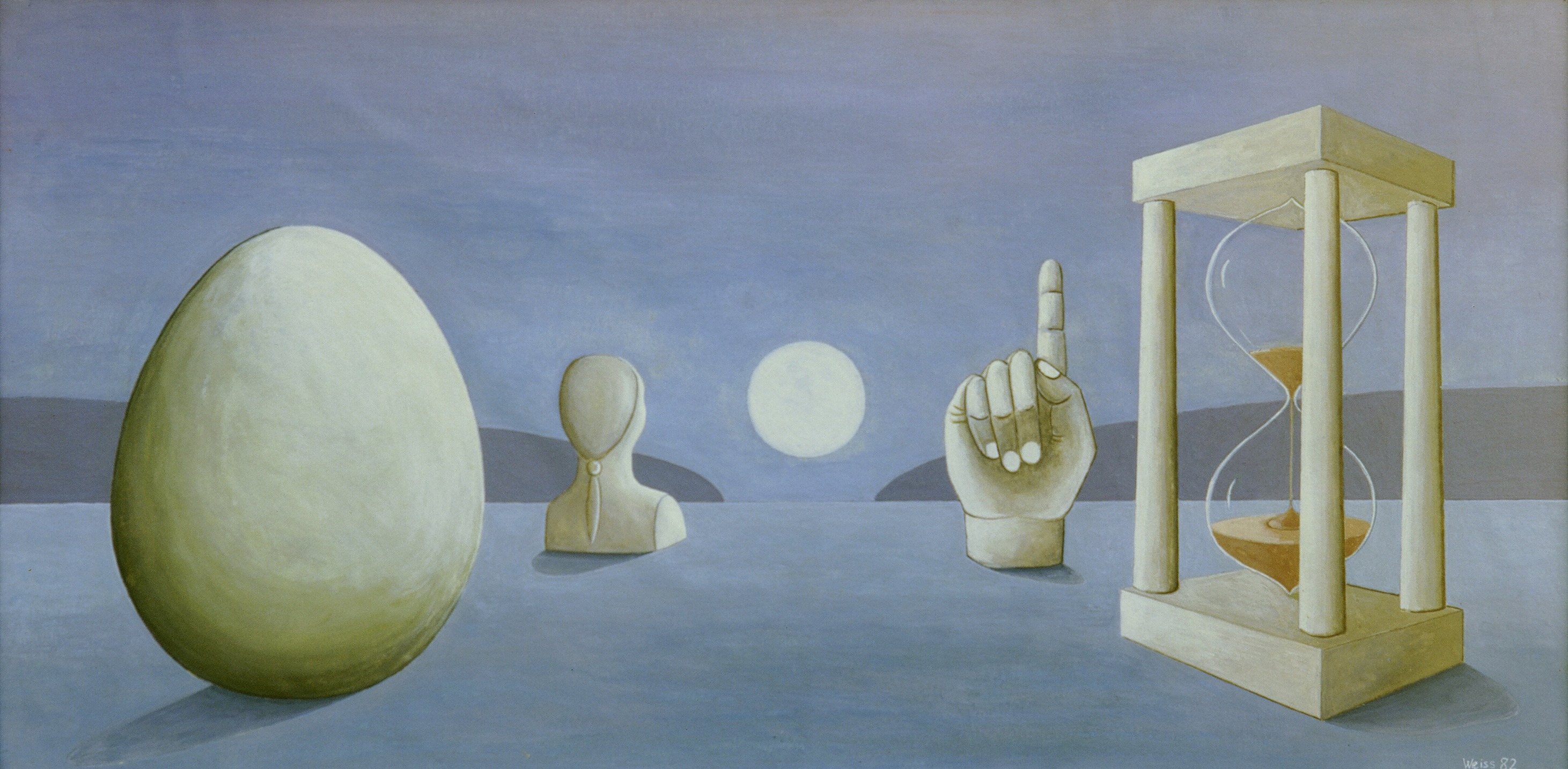|
Ludovico Fulci
Ludovico Fulci (1 January 185028 June 1934) was a lawyer and professor of jurisprudence from Sicily who became a national Italian politician. He can, for most purposes, be considered to have been a member of the Radical Party (''"Partito Radicale storico"''). During an unusually lengthy parliamentary career, he served as a member of the Chamber of Deputies (''"Camera dei deputati"''), between 1882 and 1913, and then - some thought in defiance of his own his anti-Monarchist principals - accepted nomination by the king as a senator in 1919, serving in the senate until his death in 1934. Biography Provenance and early years Ludovico Fulci was born in Santa Lucia del Mela, a small municipality located in the hills to the west of the provincial capital, Messina. He was the son of Antonio Fulci by his marriage to Nicolina Taccone, who was also of aristocratic provenance. The Fulci of Santa Lucia del Mela were a family from the minor nobility, originally from Tropea. ... [...More Info...] [...Related Items...] OR: [Wikipedia] [Google] [Baidu] |
Santa Lucia Del Mela
Santa Lucia del Mela ( Sicilian: ''Santa Lucìa dû Mela'') is a '' comune'' (municipality) in the Metropolitan City of Messina in the Italian region Sicily, located about east of Palermo and about west of Messina. It is one of the largest comunes in the province of Messina. Santa Lucia del Mela borders the following municipalities: Barcellona Pozzo di Gotto, Casalvecchio Siculo, Castroreale, Fiumedinisi, Furci Siculo, Gualtieri Sicaminò, Mandanici, Merì, Pace del Mela, Pagliara, San Filippo del Mela, San Pier Niceto. Geography The territory of the municipality of Santa Lucia del Mela, one of the largest in the province (less than 83 km ²), has a rich variety of landscapes. From the highest peaks of Peloritani, it offers the vision of the Tyrrhenian and Ionian seas. The wild and unspoilt have a rich variety of flora, ancient oaks, native forests. Climbing up the apple and its clear water perennial, you get to the giant prehistoric fern, that grows by at ... [...More Info...] [...Related Items...] OR: [Wikipedia] [Google] [Baidu] |
1882 Italian General Election
General elections were held in Italy on 29 October 1882, with a second round of voting on 5 November.Dieter Nohlen & Philip Stöver (2010) ''Elections in Europe: A data handbook'', p1047 The "ministerial" left-wing bloc emerged as the largest in Parliament, winning 289 of the 508 seats.Nohlen & Stöver, p1082 Electoral system Shortly before the elections the voting age was lowered from 25 to 21 and the tax requirement lowered from ₤40 to ₤19.80, whilst men with three years of primary education were exempted from it.Nohlen & Stöver, pp1029-1030 This resulted in the number of eligible voters increasing from 621,896 at the 1880 elections to 2,017,829.Nohlen & Stöver, p1049 The electoral system was changed from one based on single-member constituencies to one based on small multi-member constituencies with between two and five seats. Voters had as many votes as there were candidates, except in constituencies with five seats, in which they were limited to four votes.Nohlen & St ... [...More Info...] [...Related Items...] OR: [Wikipedia] [Google] [Baidu] |
Franz Joseph I Of Austria
Franz Joseph I or Francis Joseph I (german: Franz Joseph Karl, hu, Ferenc József Károly, 18 August 1830 – 21 November 1916) was Emperor of Austria, King of Hungary, and the Grand title of the Emperor of Austria, other states of the Habsburg monarchy from 2 December 1848 until his death on 21 November 1916. In the early part of his reign, his realms and territories were referred to as the Austrian Empire, but were reconstituted as the dual monarchy of the Austro-Hungarian Empire in 1867. From 1 May 1850 to 24 August 1866, Franz Joseph was also President of the German Confederation. In December 1848, Franz Joseph's uncle Ferdinand I of Austria, Emperor Ferdinand abdicated the throne at Olomouc, as part of Minister President Felix zu Schwarzenberg's plan to end the Revolutions of 1848 in Hungary. Franz Joseph then acceded to the throne. Largely considered to be a reactionary, he spent his early reign resisting constitutionalism in his domains. The Austrian Empire was forced to c ... [...More Info...] [...Related Items...] OR: [Wikipedia] [Google] [Baidu] |
Austro-Hungarian Army
The Austro-Hungarian Army (, literally "Ground Forces of the Austro-Hungarians"; , literally "Imperial and Royal Army") was the ground force of the Austro-Hungarian Dual Monarchy from 1867 to 1918. It was composed of three parts: the joint army (, "Common Army", recruited from all parts of the country), the Imperial Austrian Landwehr (recruited from Cisleithania), and the Royal Hungarian Honvéd (recruited from Transleithania). In the wake of fighting between the Austrian Empire and the Hungarian Kingdom and the two decades of uneasy co-existence following, Hungarian soldiers served either in mixed units or were stationed away from Hungarian areas. With the Austro-Hungarian Compromise of 1867 the new tripartite army was brought into being. It existed until the disestablishment of the Austro-Hungarian Empire following World War I in 1918. The joint "Imperial and Royal Army" ( or ''k.u.k.'') units were generally poorly trained and had very limited access to new equipment bec ... [...More Info...] [...Related Items...] OR: [Wikipedia] [Google] [Baidu] |
Guglielmo Oberdan
Guglielmo Oberdan, (born Wilhelm Oberdank) (February 1, 1858 - December 20, 1882) was an Italian irredentist. He was executed after a failed attempt to assassinate Austrian Emperor Franz Joseph, becoming a martyr of the Italian unification movement. Biography He was born in the city of Trieste, which was Austrian at the time. His mother was a German woman from Šempas in the County of Gorizia and Gradisca, while his father, Valentino Falcier, was a Venetian soldier in the Austrian army. He did not acknowledge his son, so Wilhelm took his mother's surname. He was educated in an Italian cultural milieu, embraced irredentist ideas and Italianized his name to "Guglielmo Oberdan". In 1877 he enrolled at Vienna's College of Technology (now Vienna University of Technology) where he studied engineering. As he supported the idea of independence for all of the empire's national groups he resented the occupation of Bosnia-Herzegovina by Austria-Hungary and therefore deserted from ... [...More Info...] [...Related Items...] OR: [Wikipedia] [Google] [Baidu] |
Trieste
Trieste ( , ; sl, Trst ; german: Triest ) is a city and seaport in northeastern Italy. It is the capital city, and largest city, of the autonomous region of Friuli Venezia Giulia, one of two autonomous regions which are not subdivided into provinces. Trieste is located at the head of the Gulf of Trieste, on a narrow strip of Italian territory lying between the Adriatic Sea and Slovenia; Slovenia lies approximately east and southeast of the city, while Croatia is about to the south of the city. The city has a long coastline and is surrounded by grassland, forest, and karstic areas. The city has a subtropical climate, unusual in relation to its relatively high latitude, due to marine breezes. In 2022, it had a population of about 204,302. Capital of the autonomous region of Friuli Venezia Giulia and previously capital of the Province of Trieste, until its abolition on 1 October 2017. Trieste belonged to the Habsburg monarchy from 1382 until 1918. In the 19th century the mon ... [...More Info...] [...Related Items...] OR: [Wikipedia] [Google] [Baidu] |
Rome
, established_title = Founded , established_date = 753 BC , founder = King Romulus (legendary) , image_map = Map of comune of Rome (metropolitan city of Capital Rome, region Lazio, Italy).svg , map_caption = The territory of the ''comune'' (''Roma Capitale'', in red) inside the Metropolitan City of Rome (''Città Metropolitana di Roma'', in yellow). The white spot in the centre is Vatican City. , pushpin_map = Italy#Europe , pushpin_map_caption = Location within Italy##Location within Europe , pushpin_relief = yes , coordinates = , coor_pinpoint = , subdivision_type = Country , subdivision_name = Italy , subdivision_type2 = Region , subdivision_name2 = Lazio , subdivision_type3 = Metropolitan city , subdivision_name3 = Rome Capital , government_footnotes= , government_type = Strong Mayor–Council , leader_title2 = Legislature , leader_name2 = Capitoline Assemb ... [...More Info...] [...Related Items...] OR: [Wikipedia] [Google] [Baidu] |
Francesco Crispi
Francesco Crispi (4 October 1818 – 11 August 1901) was an Italian patriot and statesman. He was among the main protagonists of the Risorgimento, a close friend and supporter of Giuseppe Mazzini and Giuseppe Garibaldi, and one of the architects of Italian unification in 1860.Nation-building in 19th-century Italy: the case of Francesco Crispi Christopher Duggan, History Today, 1 February 2002 Crispi served as for six years, from 1887 to 1891, and again from 1893 to 1896, and was the first Prime Minister from Southern Italy. Crispi ... [...More Info...] [...Related Items...] OR: [Wikipedia] [Google] [Baidu] |
Provincial Council (Italy)
The Provincial Council is the municipal legislative body responsible for the governance for each of the Provinces of Italy. According to the 2014 reform, each province is headed by an executive President assisted by a legislative body, the Provincial Council, while the executive body, the Provincial Executive, was abolished. The President and members of Council are elected separately by mayors In many countries, a mayor is the highest-ranking official in a Municipal corporation, municipal government such as that of a city or a town. Worldwide, there is a wide variance in local laws and customs regarding the powers and responsibilities ... and city councilors of each municipality of the province. Since 2015, the President and other members of the Council will not receive a salary. Democratic elections for the Provincial Councils were held from 1951 to 2011. References Local government in Italy Provinces of Italy {{Italy-gov-stub ... [...More Info...] [...Related Items...] OR: [Wikipedia] [Google] [Baidu] |
Religious Education
In secular usage, religious education is the teaching of a particular religion (although in the United Kingdom the term ''religious instruction'' would refer to the teaching of a particular religion, with ''religious education'' referring to teaching about religions in general) and its varied aspects: its beliefs, doctrines, rituals, customs, rites, and personal roles. In Western and secular culture, religious education implies a type of education which is largely separate from academia, and which (generally) regards religious belief as a fundamental tenet and operating modality, as well as a prerequisite for attendance. The secular concept is substantially different from societies that adhere to religious law, wherein "religious education" connotes the dominant academic study, and in typically religious terms, teaches doctrines which define social customs as "laws" and the violations thereof as "crimes", or else misdemeanors requiring punitive correction. The free choice of r ... [...More Info...] [...Related Items...] OR: [Wikipedia] [Google] [Baidu] |
Leonida Bissolati
Leonida Bissolati (20 February 1857 in Cremona – 6 May 1920 in Rome) was a leading exponent of the Italian socialist movement at the turn of the nineteenth century. Biography He was born from the liaison of Paolina Bergamaschi, a nurse, with Stefano Bissolati, a priest who left the Church in 1859, at age 37, and later became director of Cremona's city library and a noted scholar. At birth the child was named Leonida Bergamaschi; his name was changed at age 18, when Stefano Bissolati legally adopted him (after marrying Paolina in 1868, five years after she had become a widow). With this family background, it is scarcely surprising that Leonida turned to leftist politics as a student at the University of Bologna, where he earned his law degree at the age of 20. Returning to Cremona, he practiced law as an attorney and published many articles in journals and newspapers. In 1876 he was elected to the City Council of Cremona, at first in the ranks of the Radicals, then gradu ... [...More Info...] [...Related Items...] OR: [Wikipedia] [Google] [Baidu] |





